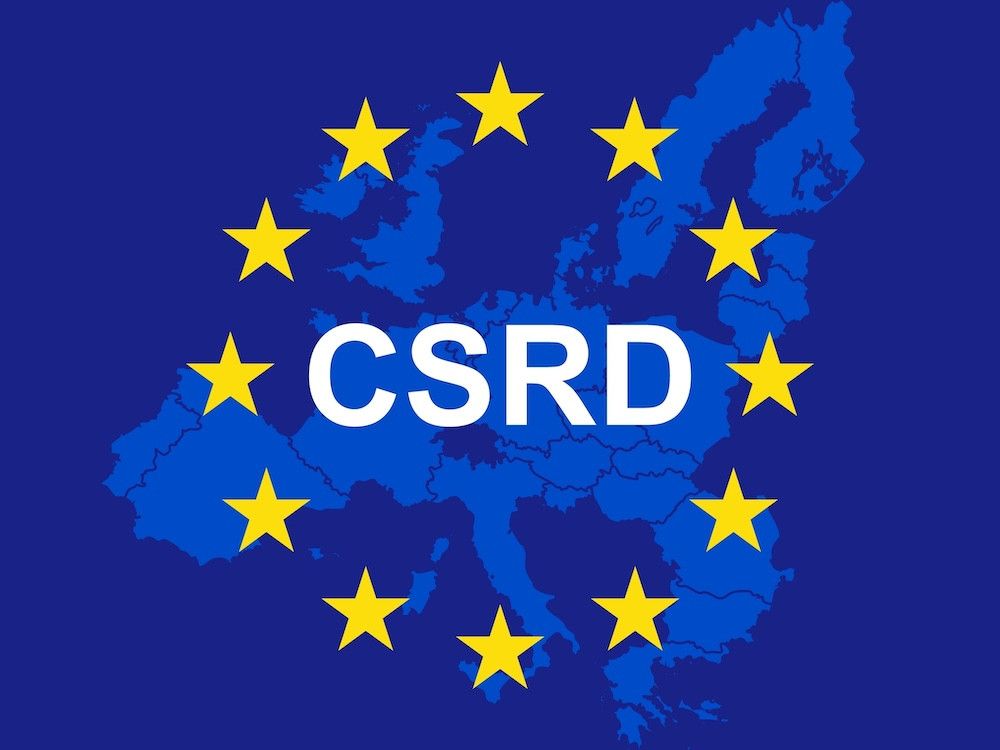Europe Dilutes Climate Reporting Rules Amid Business Backlash


Cut through the green tape
We don't push agendas. At Net Zero Compare, we cut through the hype and fear to deliver the straightforward facts you need for making informed decisions on green products and services. Whether motivated by compliance, customer demands, or a real passion for the environment, you’re welcome here. We provide reliable information—why you seek it is not our concern.
The European Commission has announced a significant rollback of its flagship climate accounting policies following intense opposition from businesses and member states. The move, which aims to reduce the regulatory burden on companies, has sparked both relief among industry leaders and criticism from environmental advocates.
Key Changes to EU Climate Regulations
The revisions primarily affect two major initiatives: the Corporate Sustainability Reporting Directive (CSRD) and the Corporate Sustainability Due Diligence Directive (CSDDD). These policies were initially designed to hold companies accountable for their environmental and social impact, aligning with the broader goals of the European Green Deal. However, due to concerns over competitiveness and rising costs, the Commission has significantly watered down these obligations:
The reporting requirement will now apply only to companies with over 1,000 employees (up from 250 employees) and a turnover of at least €50 million.
Around 80% of previously in-scope companies are now exempt from mandatory reporting.
Some sector-specific reporting requirements have been eliminated.
The compliance deadline has been pushed back, with some companies no longer needing to report until 2028.
The requirement to develop a climate transition plan remains but is now optional rather than mandatory.
Penalties and fines have been reduced, and assessments will now occur every five years instead of annually.
A Cost-Saving or a Step Back?
The European Commission claims the changes will save businesses €6.3 billion ($6.61 billion) in compliance costs while maintaining Europe’s commitment to climate goals. "This is a major step forward in creating a more favorable business environment to help EU companies grow, innovate, and create quality jobs," the Commission stated.
Despite this, environmental groups and sustainability advocates have condemned the rollback, arguing that it undermines years of progress in corporate transparency. Giorgia Ranzato, sustainable finance manager at Transport & Environment, criticized the move, stating: “Today’s proposal throws Europe into reverse, erasing a decade of gains in sustainability and global competitiveness.” She further warned that the new reporting obligations will apply to just 0.02% of European companies, leading to a severe lack of ESG data.
Industry & Political Reactions
The decision follows pressure from key EU economies like Germany and France, whose governments and businesses raised concerns about profitability and trade disadvantages compared to American and Asian competitors. Additionally, U.S. companies operating in Europe must still comply with these directives, a situation further complicated by potential pushback from the U.S. government. Newly appointed U.S. Commerce Secretary Howard Lutnick has hinted at possible trade measures to shield American firms from stringent EU regulations.
For companies that had already invested in preparing CSRD sustainability statements, the changes create an uneven playing field. Becky Clissmann, counsel at Ashurst law firm, noted that some businesses that previously incurred compliance costs now find themselves at a disadvantage compared to competitors newly exempt from the rules.

A Shift Towards Industrial Support?
Alongside these regulatory changes, the Commission unveiled a Clean Industrial Deal designed to bolster EU-based clean technology and industrial decarbonization. The plan includes:
€100 billion in funding to support energy-intensive industries in reducing emissions.
The establishment of an Industrial Decarbonisation Bank, financed through the EU Emissions Trading System and the Innovation Fund.
Measures to lower energy costs and stimulate demand for clean technologies within the EU.
Wopke Hoekstra, European Commissioner for Climate, Net Zero, and Clean Growth, emphasized that the EU remains committed to sustainability while ensuring that businesses remain competitive. “We will reindustrialize our economy but will do so in a European way,” he stated during a press conference.
The Future of EU Sustainability Policy
The dilution of the CSRD and CSDDD directives reflects a broader debate on balancing sustainability goals with economic competitiveness. While businesses welcome the reduced burden, the long-term consequences on corporate transparency and climate accountability remain uncertain. As the EU recalibrates its climate strategy, investors, regulators, and consumers will be closely watching how these changes impact Europe’s progress toward a greener economy.
Source: wsj.com

Mentioned in this article...
Organizations
More related content

Arup and Autodesk Join Forces to Accelerate Decarbonization in Cons...

ASHRAE and ICC Launch Second Public Review for Standard 240P on Lif...

Canada Infrastructure Bank and Scotiabank Partner on $100M Green Re...
